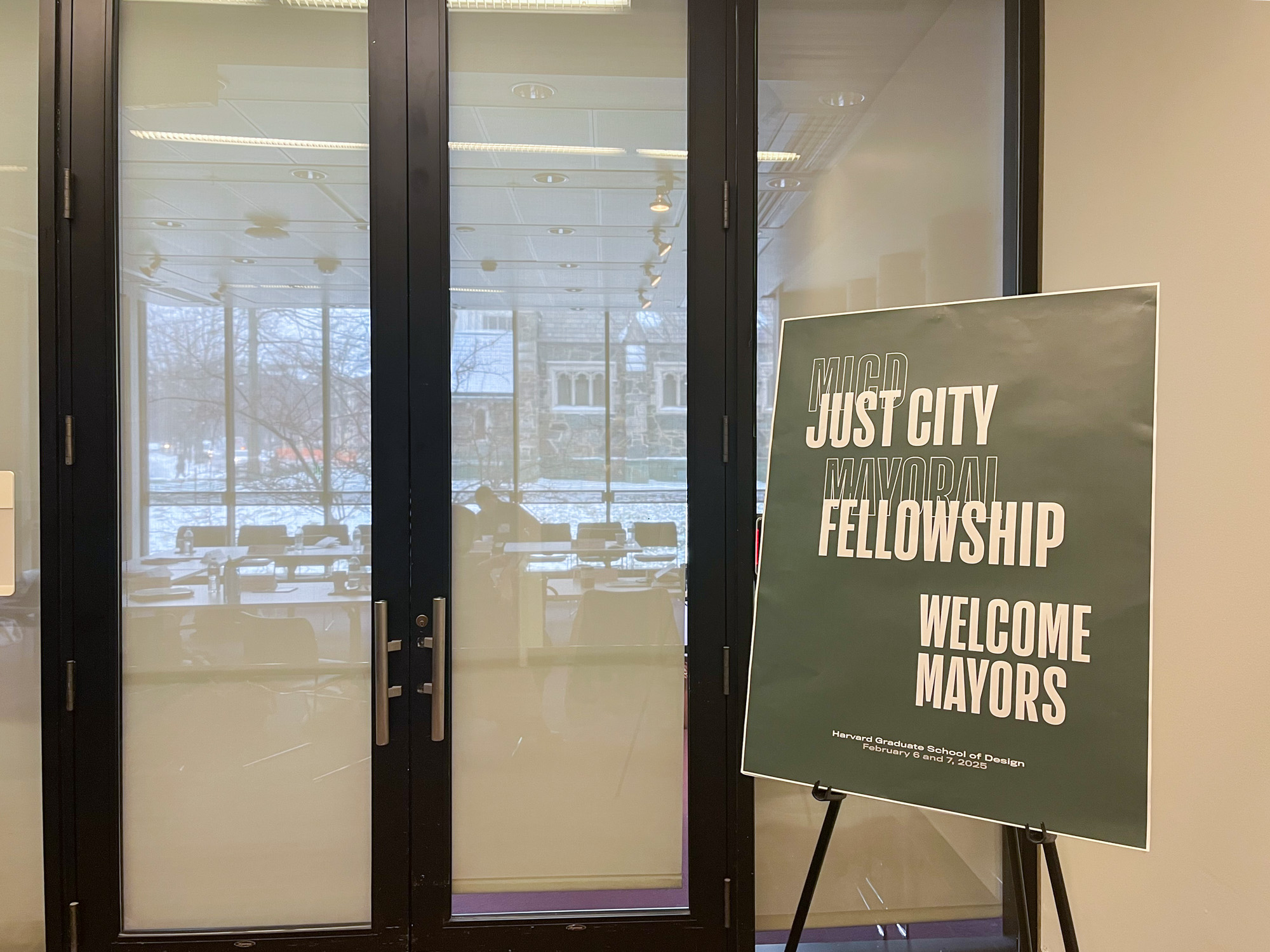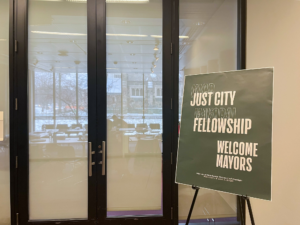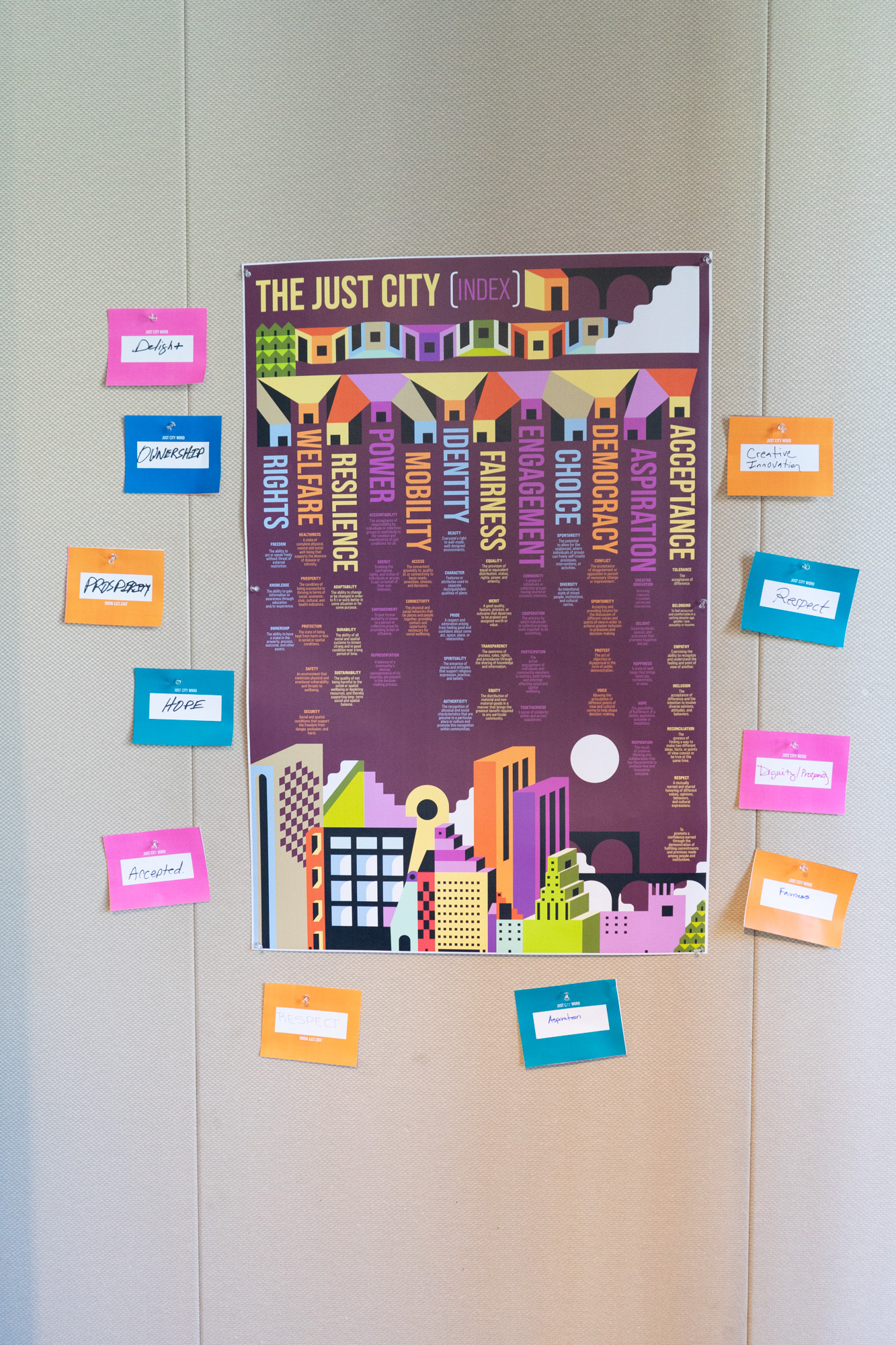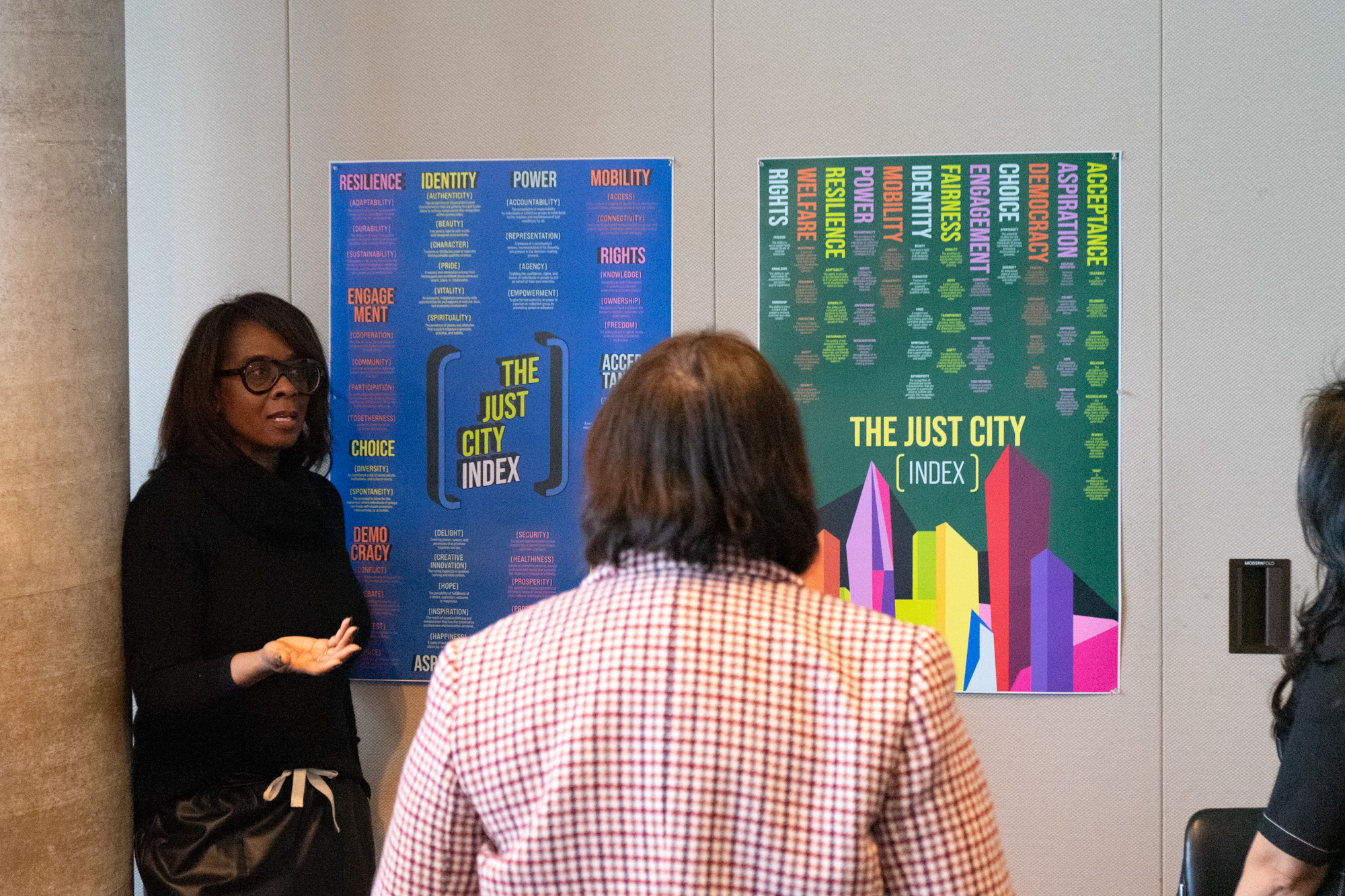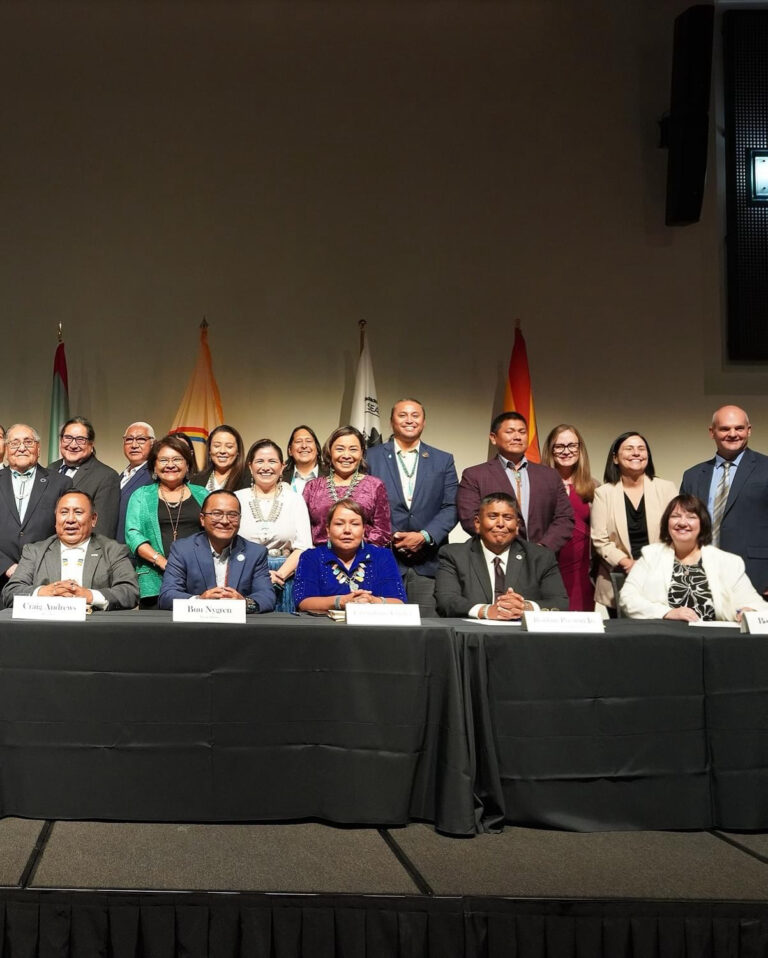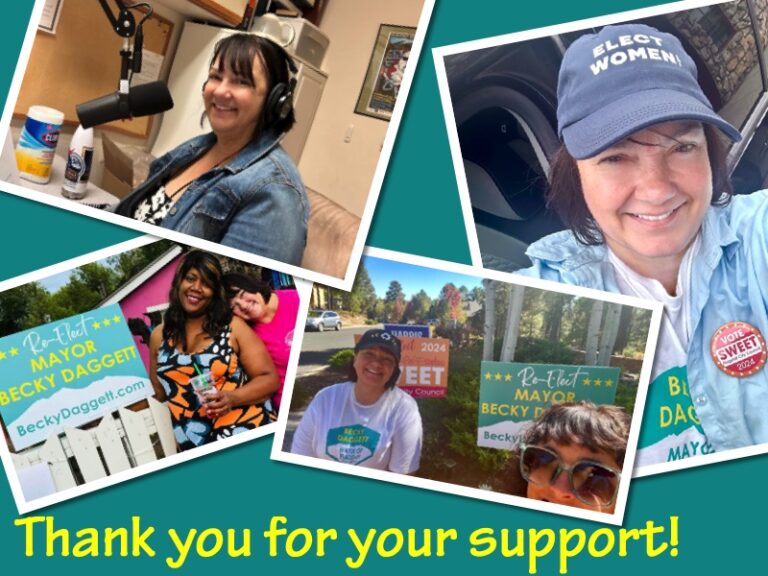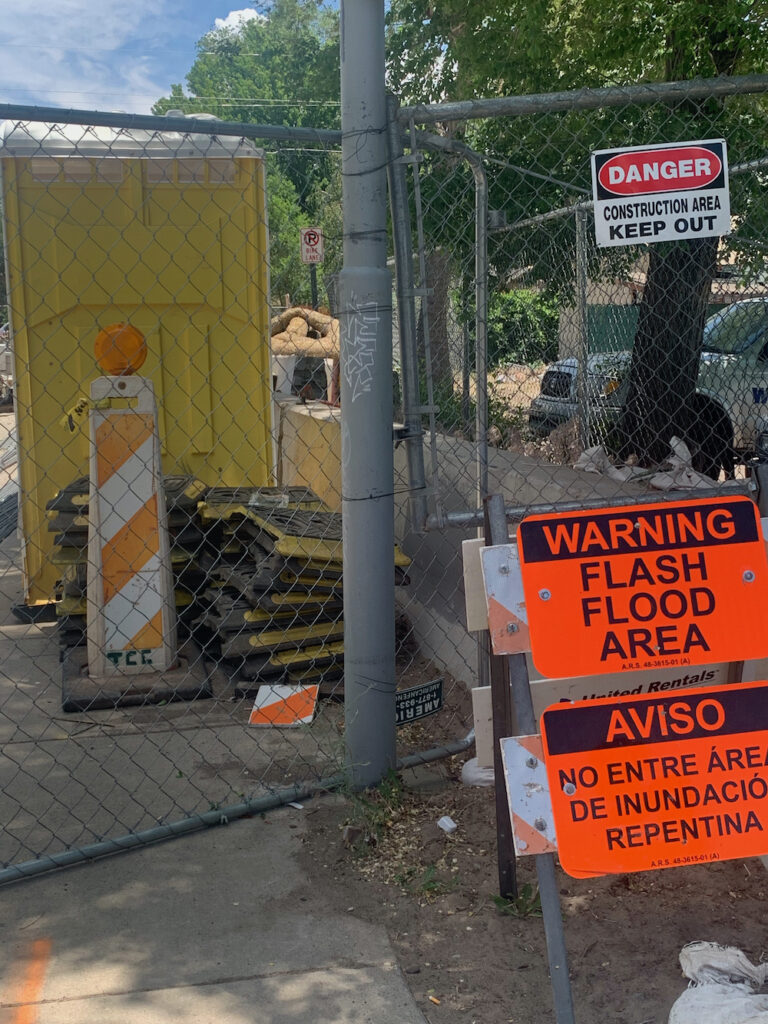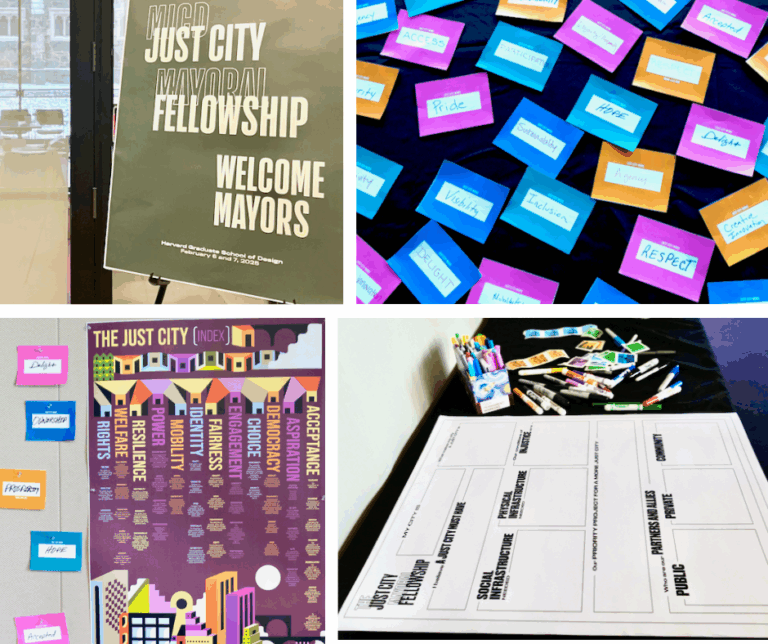Just City Mayoral Fellowship: Mayors’ Institute on City Design
“In the face of a nationwide housing crisis, the 2025 Fellowship – now in its fifth year – will explore what it means to house our communities. The curriculum will introduce mayors and their staff to planning and design frameworks – beyond housing supply and demand – that maximize all city resources to support the broad range of housing needs faced by a broad range of city populations. Over a semester-long program, the Lab’s Just City Index will frame dynamic presentations and dialogues with experts in the fields of architecture, landscape architecture, urban planning, art activism, housing, and public policy. Throughout the Fellowship, mayors and their staff will identify challenges in the social, economic, and physical infrastructures of their cities and develop plans of action for their communities.
The 2025 MICD Just City Mayoral Fellows are: Bloomington, IN Mayor Kerry Thomson; Gainesville, FL Mayor Harvey Ward; Jackson, TN Mayor Scott Conger; Portsmouth, VA Mayor Shannon Glover; Flagstaff, AZ Mayor Becky Daggett; Montgomery, AL Mayor Steven L. Reed; San Bernardino, CA Mayor Helen Tran; and Suisun City, CA Mayor Alma Hernandez.”
The opening workshop laid a foundation for defining urban justice and injustice through design and public policy. Through a combination of guest speaker panels, interactive discussions, and workshop activities, mayors were welcomed to “graduate school” and invited to take a critical look at the ripple effects of city design decisions, acquiring new knowledge and vocabulary for enacting just and equitable city values and outcomes.
Download resources from the Opening Workshop:
Kicking off Module 1: Just Neighborhoods & Neighborhood Change, this week’s class invites lecturers to share an overview of how best to define and assess when neighborhood change produces gentrification and how government has managed neighborhood change, housing policy, and investment over time.
Gentrification and the real and perceived impacts that neighborhood change has on longtime and new local residents is complicated to document. Many believe displacement is an inherent byproduct of gentrification, yet little research exists to quantify or even confirm if and how displacement occurs. Is displacement inevitable, is it voluntary or involuntary; and if so, is it economic or cultural? The gentrification definition that relies on the inflation in housing prices, increases in median household income, and changes in educational attainment, might confirm that gentrification and even displacement are real. But what about the upside of new investment — the addition of new and often better-quality amenities and increases in home values and household wealth for long-time homeowners?
Speakers this week are Lance Freeman, Penn Integrates Knowledge (PIK) Professor of City and Regional Planning, and Sociology at the University of Pennsylvania, and James Stockard, Lecturer in Urban Planning and Design at the Harvard GSD.
Week 3: Housing Diverse Populations
In this week’s class, we discussed how changes in housing rents, sales prices, renovations and new construction – in areas that have not seen such increases and improvements – are the most commonly understood measures of neighborhood change and gentrification. As such, housing affordability becomes a central focus of neighborhood planning in response to residents’ legitimate fears and concerns about economic and cultural displacement. However, what defines affordability and access to quality housing choices is different within different market economies, with different histories of investment and disinvestment, and for different household compositions.
The lecture and readings provided current data and strategies being developed and deployed to meet the housing and quality of life needs for a diverse range of specific populations, including progressive strategies being utilized outside of the United States. Speakers: Jennifer Molinsky, Director, Harvard Joint Center for Housing Studies, and William Gilchrist, Director of Planning and Building, City of Oakland, CA.
Arboretum Cohousing in Madison, WI
University models: University Retirement Communities Lasell Village Mirabell ASU
Leading Age Virginia chapter: encouraging more housing options for older adults
Additional Resources
No-cost technical assistance for equitable development planning From a past Fellowship speaker, this program run by the 11th Street Bridge Park will help 5 nonprofits create an equitable development plan and strategize about fundraising. (Applications from community nonprofits due 3/14)

